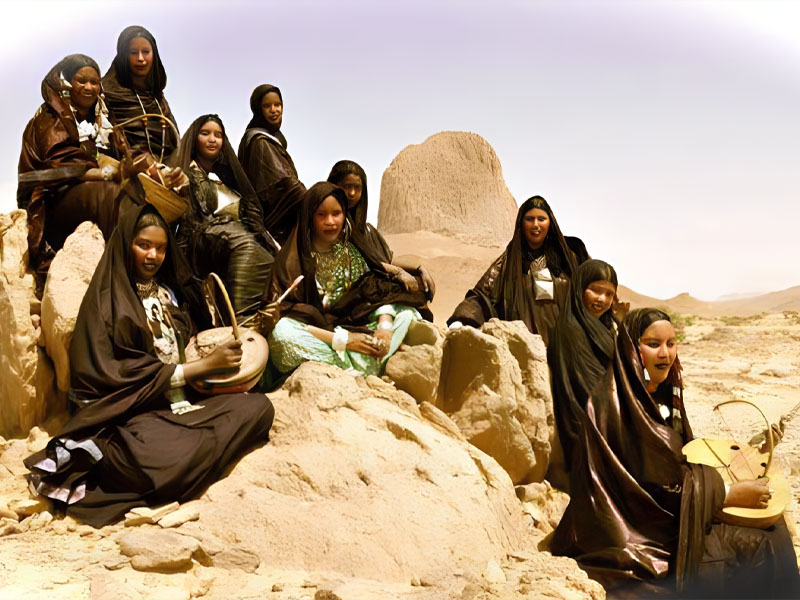The folklore of the Amohag tribes (the northern branch of the Tuareg people) and its role in heritage
Issue 41

By Dr. Nasimah Karaiba’ Abdulhafiz Bu Al-Souf, Mila, Algeria
This study sheds light on the oral heritage of the Sahara Desert; we should educate people about this heritage by spreading information through cultural outlets and the media. Local and international organisations should help to elevate the status of this heritage, which belongs to humanity.
More studies are needed in order to emphasise the historical and aesthetic importance of this heritage, which has always had the potential to bring people together.
It is imperative for the people of the desert to recognise the importance of studying their heritage; they should encourage authorities to promote it to tourists as a cultural offering, especially in this globalised world.
Statistics from the research centres show that the desert plays an important role in the people’s heritage and resources. The Algerian desert has become a focal point for Algerian folk culture. Domestic tourists will learn about Algerian folk dances such as Imzad, Tandi and Tisyuwan, which are part of a distinguished cultural legacy in the southern part of Algeria’s desert.
We can boost domestic and foreign tourism to the Algerian desert by showcasing local folk music from every part of the southern desert. This will help to boost cultural, social and economic development in the region and to revive local folklore on the African coast, a popular destination for tourists from around the world. They come to learn about the ‘Blue Man’; Westerners are fascinated by his clothing and songs, and his ability to overcome adversity with generosity, courage, patience, and skilled horsemanship.
This study offers a number of recommendations to boost cultural tourism in the south, including:
- Attempting to enhance Arab awareness of African folklore in order to encourage an interest in the desert
- Adopting a unified and flexible Arab-African strategic policy for the development of the desert based on the strong relationship between the Arabian desert and the African Sahara due to their longstanding cultural interactions and exchanges
- Encouraging academic studies of the Algerian desert’s cultural history in order to support future studies in the light of international changes and development
- Focusing attention on the establishment of research centres specialised in cultural anthropology and folk cultures in order to study cultural heritage by collecting, classifying and analysing data and statistics







































































